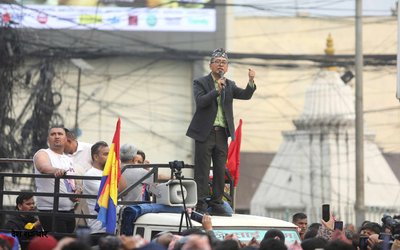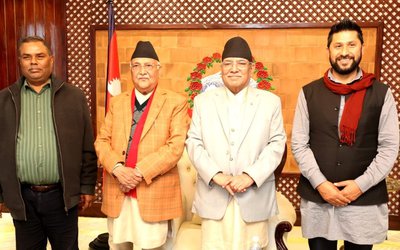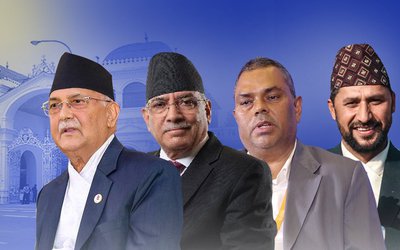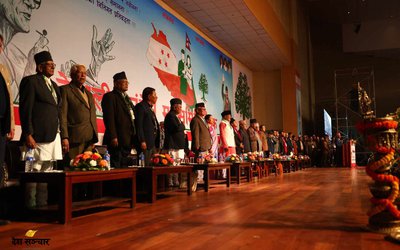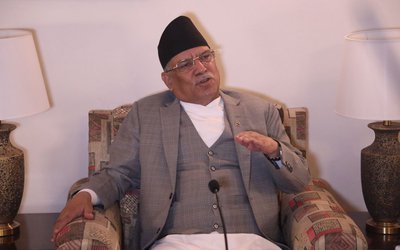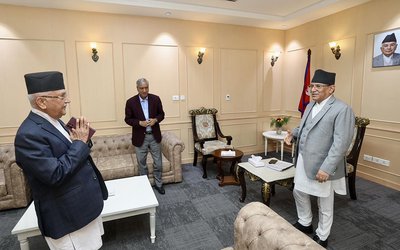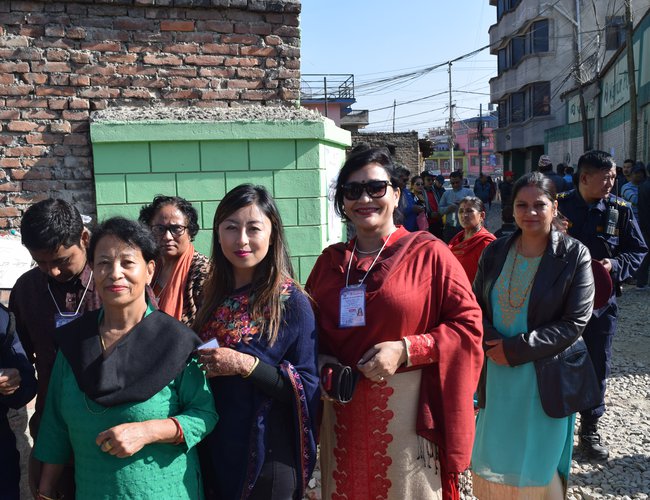
Some 12.3 million out of a total electorate of 15.4 million will vote in the second and last phase of elections for a federal and seven provincial legislatures in Nepal on Thursday. This will be the first election under the country’s new constitution that came into effect in September 2015, and the campaign has been shot through with a strong sense of history in the making, the panic triggered by over a hundred small and large terrorist attacks tragetting high-profile candidates notwithstanding.
The first phase of polling on November 26, when votes were cast for 37 parliamentary and 74 provincial legislature seats, saw a turnout of 65%. Nepal’s Parliament will have 275 seats, 165 of which will be decided by direct voting in which the winner will be chosen by the ‘first past the post’ system that is in vogue in India; the remaining 110 seats will be decided by a system of proportional representation. The seven provincial legislatures will together have 330 members; each of these Houses will have a different strength.
The final outcome of the election will take about a month to be declared. The exercise is being watched with great interest by the world, and especially China and India, who played very significant roles in the peace process that has brought sweeping political change in Nepal since April 2006. For the three biggest parties — the Nepali Congress (NC) and the Left Alliance comprising the Communist Party of Nepal-Unified Marxist Leninist (CPN-UML) and the Communist Party of Nepal-Maoist Centre (CPN-MC) — the election is the vehicle for the irreversible constitutional endorsement of Nepal’s transformation into a secular Republic from a Hindu Kingdom.
Deep suspicions
About eight parties worked closely with India, visibly since 2005, to bring the Maoists, then engaged in an insurgency aimed at establishing a communist state, on to a peaceful, democratic, anti-monarchy platform. Following the first election to the Constituent Assembly in April 2008, the 240-year-old monarchy was abolished, but at that moment also began the parties’ drift away from their public pledge to pursue politics through “consensus”.
Today, the friends-turned-foes are deeply suspicious of each other. “If the communists come to power, our freedoms will be snatched by a totalitarian regime,” Prime Minister and NC chairman Sher Bahadur Deuba has been saying repeatedly. The Left Alliance has scoffed at this, but its leaders have shied away from talking about a plan to bring about sweeping amendments in the constitution to create two power centres — a consolidated ruling party after unification, and an Executive President in place of the ceremonial Head of State.
Campaign for boycott
The series of still-unexplained bombings indicates action by underground militant groups to disturb the polls. The Rastriya Janata Party Nepal, based in Madhes, the eastern Terai primarily inhabited by Maithali- and Bhojpuri-speaking people, agreed to participate in the election only after prodding by India — but attracted, in the process, strong criticism from a section of the radical elite. A senior advisor to the UK government’s overseas aid arm, the Department for International Development (DFID), put out an abusive post on social media against the top three Madhesi leaders.
European Union diplomats have been in touch with C K Raut, a campaigner for an independent Madhes, who has been asking people in the Madhes area to invalidate their votes, which could then be claimed as proof of support for secession. A large EU election observers team has been camping in Nepal for the past three weeks, and monitoring the behaviour of state agencies towards campaigning for a boycott. Kathmandu and some other parts of the country have also witnessed large rallies to demand the restoration of the monarchy and of Nepal’s Hindu status.
Neighbors and the elections
India has frequently been accused of “micro-managing” Nepal’s politics, and China has gained at India’s cost in popularity and acceptability in Nepal. Foreign Direct Investment flows from China have increased, including in the crucial tourism and hydropower sectors, and Nepal has ignored India’s advice to not join President Xi Jinping’s Belt and Road Initiative.
China does not seem happy with the current NC-led government in Kathmandu. Following the cancellation of the contract for the 1,200 MW Budhi Gandaki hydropower project that had been awarded to China’s Gezhouba Group, Zhang Shubin, the influential director of the Nepal Centre at the Hebei University of Economy and Business, wrote in the communist party mouthpiece Global Times that the “capricious backtrack on agreement of the current Nepali Congress government did not just harm the legitimate right of the Chinese corporation, but showed an unfriendly attitude towards China”. After Chinese Ambassador Yu Hong suggested to the government that handing over the Budhi Gandaki contract to India, as was being speculated in a section of the Indian media, would be seen as an “unfriendly act”, the government announced hastily that Nepal would build the project itself. K P Oli, the projected Prime Minister of the Left Alliance, has said that in the event of his victory, the Chinese company would get back the project.
Having burnt its fingers in Nepal, India appears to treading cautiously, indicated by an unusual silence over the elections. It has huge stakes in Nepal, but can clearly no longer treat its Himalayan neighbour as part of its sole sphere of influence.
Courtesy: Indian Express

Voters at Poll
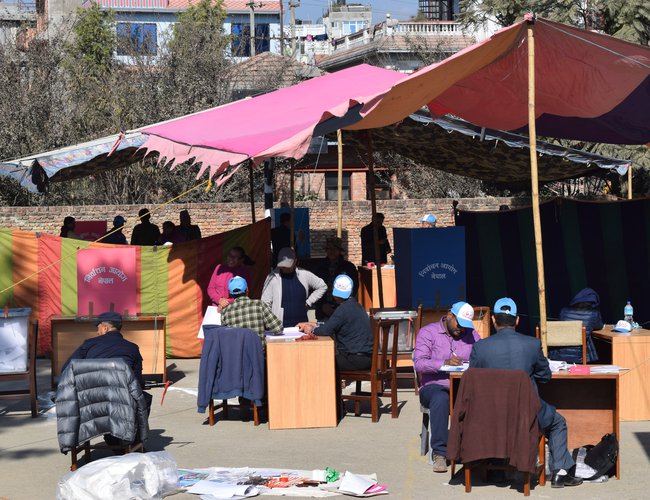
Polling booth
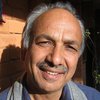
Yubaraj Ghimire
Ghimire is a Kathmandu based journalist.
- Why ‘Revolutionary’ Communist PM Prachanda Went To Temples In India
- Jun 08, 2023
- Why China Is Happy With Nepal’s New PM
- Jan 03, 2023
- Prachanda Sworn In As PM: New Tie-ups In Nepal, Concern In India
- Dec 27, 2022
- Young TV Anchor As Its Face, RSP Rise Takes Nepal By Surprise
- Nov 23, 2022
- Nepal Votes, Why The Verdict May Not Make New Delhi Very Happy
- Nov 23, 2022

